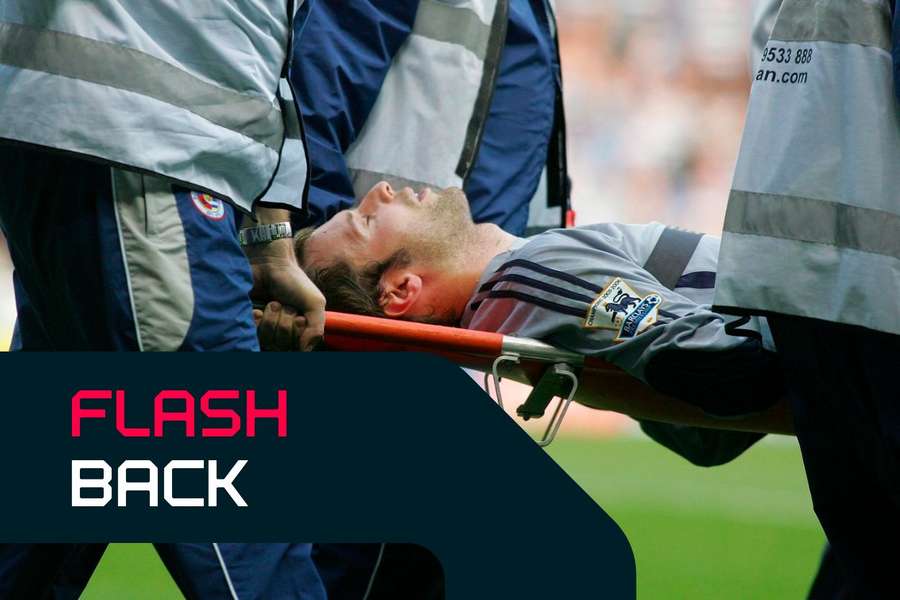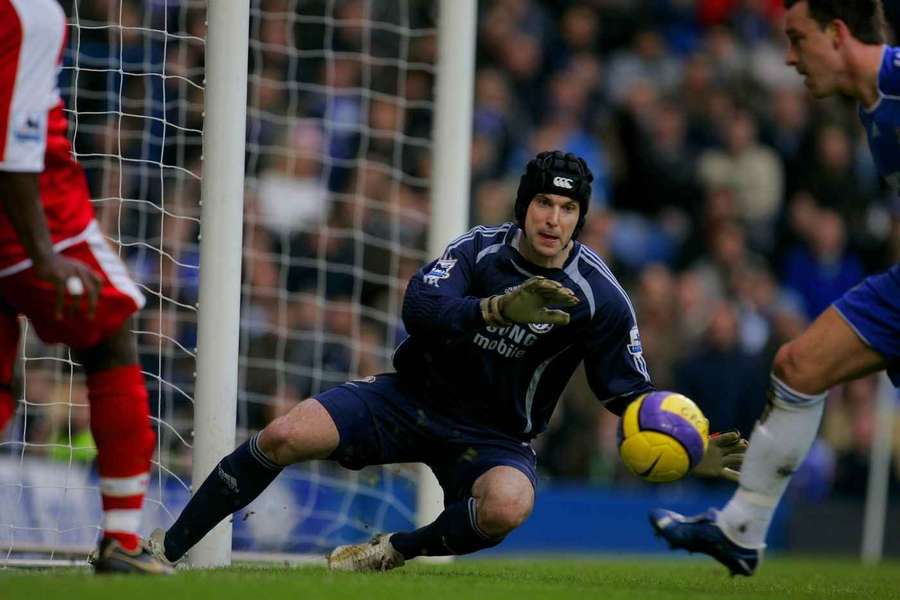Flashback: The horror head injury that changed goalkeeper Petr Cech's life

The first minute
At the very beginning of the match, there was a collision between Cech and Irish winger Stephen Hunt from Reading.
Hunt was chasing a long ball, the Czech goalkeeper caught it on the ground just in front of him and Hunt hit Cech in the head with his knee. At first glance, it didn't seem like anything too serious.
The referee, Mike Riley, also did not react in any urgent way. At first, he warned Hunt, and only after a moment, with Cech still lying on the turf, he called the medics over.
Riley was later criticized for reacting too slowly - every second could play a crucial role in what turned into a matter of life and death. Petr Cech's injury was that serious.
'Injury time'
Cech was replaced by Cudicini, but Chelsea's second goalkeeper didn't finish the match either. In second-half injury time, Reading took a corner kick, and Cudicini collided hard with Reading's Ibrahima Sonko and ended up lying limp on the ground. He even fell unconscious and also had to leave the field on a stretcher.
At that time, only three substitutions could be used in football. Jose Mourinho on the Chelsea bench used all three before that and had no other substitutions available, so Terry had to step between the sticks for the closing seconds of the fixture which saw Chelsea down to nine players as Mikel John Obi had been sent off earlier.
Nevertheless, Chelsea managed to see it out for the three points.
The scrum cap
Petr Cech suffered a severe skull fracture in the collision with Hunt's knee. He immediately underwent a difficult operation and the doctors later reported that the incident nearly cost Cech his life.
He was released from hospital after 10 days. Chelsea announced that the goalkeeper would be out for three months, in line with medical advice on the time needed for complete recovery from the skull fracture. In one of the interviews, Cech said that he had no memory of the injury itself.
He was back in action again in January 2007 and it was a very demanding comeback, as Chelsea visited Liverpool. Cech conceded a goal in the fourth minute, and another one in the 18th.
Neither were his fault, but it must have been difficult for his psyche. Many years later, he admitted that he had a terrible fear after returning from this injury and was afraid to go into tackles with opponents.
Liverpool beat Chelsea 2-0, but the goalkeeper was admirably overcoming his fears.
Right after the loss against Liverpool, Cech went 817 minutes in the Premier League without conceding a goal. On April 11th 2007, due to his eight successive league clean sheets, he was awarded the Premier League Player of the Month for the first time in his career.
The Reading-Chelsea match in October 2006, fortunately, did not have fatal consequences for both of the goalkeepers, but it still did open up a debate among experts, commentators, pundits and former goalkeepers about the need for more protection for goalkeepers during the game.
The referees, though, were under pressure, and since, then they have had to pay more attention to injuries, especially in the head area. And, of course, also Stephen Hunt faced great criticism later.
For himself and also for all of the Reading team, it was still the start of their first season in the Premier League, and they faced reigning champions Chelsea at home. Hunt was then literally hunted by the media and fans, as following the incident, he received death threats from Chelsea fans.
On the other side, Cech revealed that while Hunt had been speaking about the incident in the press for months, he hadn't personally contacted or apologised to him.
Fortunately, Cech came back after his injury and throughout his subsequent career was among the world's finest goalkeepers.

Trademark
Petr Cech started using a rugby-style head guard to protect the injured area on his head when he returned to action. At first, he wore a helmet made by Canterbury of New Zealand, a famous sportswear brand focusing on rugby gear.
However, the product was carrying the manufacturer's logo, and it caused friction with Chelsea's apparel manufacturer Adidas and also with the Czech national team's sponsor Puma.
The problem was solved after the latter sponsor developed its own head guard for Cech to wear in Chelsea matches, and during national team games, he was wearing a helmet without a manufacturer's logo.
Wearing the headguard became Petr Cech's trademark for the rest of his career, including the virtual world.



